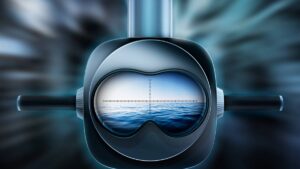Power Up: Can we reopen the nuclear debate as uranium prices brace for liftoff?

Is it time to dust off the debate about nuclear energy?
Could uranium really see a breakout this year and is it time for that talk about nuclear energy in Australia again?
The first seems to have plenty of backing with pundits expressing their belief that the energy metal will see significant price gains in 2023 due to a combination of supply concerns, Sprott taking a big chunk of physical uranium out of market circulation, and geopolitics serving to further restrict supply.
This is certainly true given that US senators have introduced bipartisan legislation aimed at banning imports of Russian uranium to further sanction Russia over its invasion of Ukraine, revive domestic uranium production, and increase national security.
Increasing national security has been a key reason behind the US Inflation Reduction Act, which offers tax breaks for domestic critical minerals production, so it is no surprise that this will be extended to uranium.
And it is just one of three bills under consideration which all seek to put an end to imports of Russian uranium.
Needless to say, the removal of Russian uranium from the US market will send prices soaring, which will no doubt be welcome news for the Australian companies in the uranium space.
Reopening the case for Australian nuclear power?
While Power Up previously opined that Australia opting to build nuclear power plants was less likely than us experiencing a shower of meatballs, it is worth asking if the Australian Government’s $368 billion plan to acquire nuclear powered submarines might have just cracked open the door just a little bit.
In the past, there simply hasn’t been enough political will to push for the adoption of nuclear energy, particularly in the face of opposition from our own particular brand of NIMBYism.
Highlighting this, Prime Minister Anthony Albanese famously said last year that the best way to see how fast Coalition members could run was to ask their party room who wanted a nuclear power station in their electorate, guessing (correctly) that even pro-nuclear opposition MPs would struggle to convince their constituents.
As is clear from these statements, the opposition stems from the unwillingness to risk having the same kind of disaster such as Chernobyl or Fukushima occur in our own backyard, despite the fact we already have a nuclear reactor, pretty damn close to the Sydney CBD actually, in Lucas Heights. It’s used for research and not power generation.
Which of course is where the AUKUS nuclear submarines come into play given that their construction in Adelaide will mean that the capital of South Australia will be exposed to nuclear reactors (albeit small ones).
Or that their proposed base at HMAS Stirling will mean the same (and for longer periods) in Perth.
Will this be enough to convince opponents that Australia can safely construct nuclear power plants?
Sadly, the answer is still likely to be no as the opposition towards nuclear energy remains entrenched along with the availability of solar power.
What might change however is the opposition that some Australian states have towards uranium exploration and mining as national security interests – to provide uranium required for our own nuclear submarines – and the likelihood of higher pricces overrule other concerns.

UNLOCK INSIGHTS
Discover the untold stories of emerging ASX stocks.
Daily news and expert analysis, it's free to subscribe.
By proceeding, you confirm you understand that we handle personal information in accordance with our Privacy Policy.








